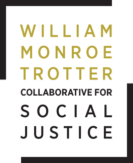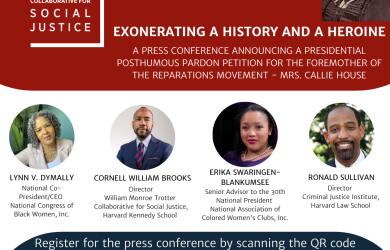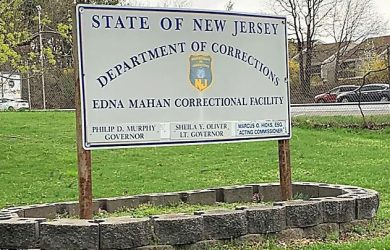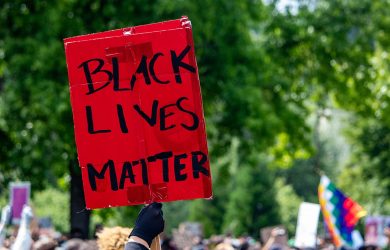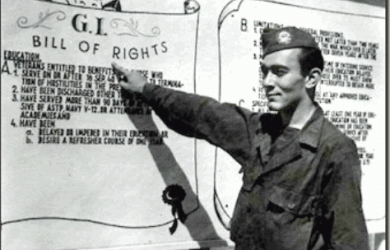On the 156th observance of Juneteenth, the community of the William Monroe Trotter Collaborative for Social Justice remembers the resilience of formerly enslaved Africans, the evils of slavery, and the concomitant anti-black violence that impacts Black people today. History reminds us that President Abraham Lincoln issued the Emancipation Proclamation, effective January 1st, 1863. That proclamation – declaring all enslaved persons in the Confederate States of America to be free – was not read to the enslaved in Galveston, Texas until June 19th, 1865 by Union Major General Gordon Granger. Those enslaved in Galveston, Texas waited over two years after President Lincoln declared formerly enslaved Africans as free persons.
“Juneteenth” is observed as Emancipation Day, a day of Jubilee and freedom celebrated by descendants of formerly enslaved Africans. This commemoration is an occasion to remember the abolitionists, soldiers, and co-conspirators for justice who fought to end the institution of slavery in the United States. However, the enslaved understood that freedom was the first step in a long movement of courageous action to become full citizens and “achieve our country.”
We commemorate Juneteenth by repairing the harms committed against people of African descent. As a matter of consensus among policy makers and protestors, Congress must pursue reparatory justice to redress the transgenerational impacts and trauma of slavery and white supremacy. We support federal legislation efforts to convene a commission to study and create reparation proposals. The United States can ill afford to deny responsibility for the egregious harms committed against humanity during slavery.
Juneteenth reminds us of the work we must do in order to ensure that Black Lives Matter. In his book Black Reconstruction (1935), Dr. W.E.B. DuBois posits, “The slave went free; stood a brief moment in the sun; then moved back again towards slavery.” The vestiges of slavery – such as share cropping, peonage, Jim crow segregation, predatory policing, mass incarceration, voter suppression, red lining, economic apartheid, healthcare disparities, and revisionist histories – continue to frustrate our efforts to create a representative democracy. The systems of injustice that constitutionally recognized Black people as three-fifths of a human continue to inform public policies that dehumanize Black people.
As our nation continues to grapple with the multiple pandemics of COVID-19 and police brutality, Juneteenth is an opportunity to rededicate ourselves to liberating the enslaved globally, experiencing dehumanization by systems of oppression. It will require all people of good will to end the moral nightmare of slavery and achieve the promise of freedom for generations yet to be born.
